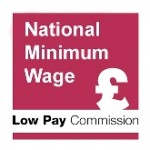The Low Pay Commission’s consultation on the 2021 minimum wage rates launched on Thursday 12 March. It was launched as a 12-week consultation, with a deadline of Thursday 4 June.
The growth of the coronavirus outbreak since then – along with the acceleration of the related economic crisis – has been dramatic. Restrictions on travel have forced us to change the way we work and have led us to cancel our programme of regional visits. All of this will have profound consequences for employers and workers across the economy, but especially in those sectors on whose evidence we rely on when making recommendations on the minimum wage. We have been asked on various occasions whether we still intend to consult on the same timetable.
We intend to continue to work to fulfil our remit, gathering evidence on the economy and labour market throughout this extremely difficult and unusual time. But, just as our programme of face-to-face meetings will have to adapt, so will our written consultation.
Will the Thursday 4 June deadline remain the same?
This deadline was originally set to allow time to read consultation responses ahead of in-person evidence sessions in July. We still intend to go ahead with these sessions, although may seek to hold them remotely.
We recognise the difficulties our stakeholders may face in responding by this deadline. We will leave the formal deadline in place, but in practice will accept evidence presented to us up until mid-July. We would appreciate advance notice of any late responses.
However, due to the ongoing and rapidly changing nature of the crisis, we may need to consult informally with stakeholders until later in the year.
It’s not possible for me to survey my members at this time.
We understand it may not be possible to provide detailed survey data during this difficult time, however, any evidence or anecdotal responses would be extremely useful and gratefully received.
I don’t know what the impact of the current crisis is going to be…
We appreciate this is a new, challenging and changing situation and it might be difficult to provide a response as it will be developing over time. However, it would be useful for us to hear how workers and employers are dealing with the pandemic, and the role of the National Minimum Wage within this.
If you are interested in providing us with responses or would like to tell us about your experience on the minimum wage, contact us at lpc@lowpay.gov.uk
What else does the consultation cover?
Our consultations include questions covering all aspects of the National Living Wage (NLW) and National Minimum Wage (NMW). This ranges from the effects it has on affordability, employment, the business environment, productivity, compliance and the public's opinions on what the rates should be in the future.
Within your responses to the consultation, you can address a few or even just one of the questions we have asked. Receiving detailed responses from larger organisations are incredibly useful too. Either way, it’s crucial that we hear from experts on the sectors and groups most affected by the minimum wage.
We would specifically like to hear about:
- What life is like on low pay
- How businesses have adapted to the rising minimum wage and how they have dealt with the pace of increases in recent years
- For workers, the difference the minimum wage makes and the other factors which affect quality of life and work
- The specific impacts of the minimum wage on young people and on apprentices
There are two areas where we’re asking new questions this year:
The National Living Wage: The Government has asked us to increase the NLW rate towards two-thirds of median earnings by 2024. This would mean the NLW rate increasing to £9.21 with a likely range of 6 pence above or below the figure in 2021, then a further increase to £10.69 with a likely range of 30 pence above or below the figure by 2024. Alongside this, the age threshold for the NLW will be reduced from its current level of 25, to 23 in 2021 and then to 21 by 2024. When reducing the NLW rate to 23 in 2021, it will create a new 21-22-Year-Old Rate, until the NLW is reduced to 21. The areas we are interested in for your views are:
- The lowering of the age threshold to 23,
- The new 21-22-Year-Old Rate in 2021
- The factors we should consider when lowering the age threshold to 21
- What rate you think should be set in April 2021
The Apprentice Rate: In 2019, surveys outlined the underpayment of apprentices. In order to tackle this, we are considering raising the Apprentice Rate, so it is aligned with the 16 – 17-Year Olds Rate. We would be interested in your views in how this raise might affect the amount of apprentice positions offered.
Therefore, we also want to hear about the possible impact of increases in the NLW and other rates, and their impacts in particular on employment and hours, pay and benefits, productivity, prices and profits.
We look forward to hearing views from a wide array of interested parties as possible. Please get in touch if you would like to discuss your ideas or experience in more depth.
